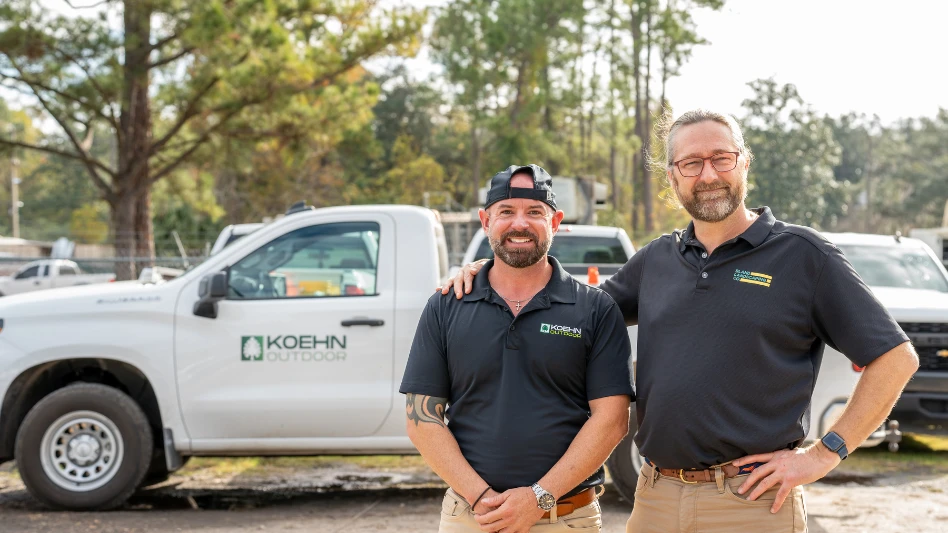 Jim HustonSurprisingly, in spite of the current economic doldrums, there is a lot of activity regarding green industry businesses being bought or sold. Mergers, while not as common as acquisitions and divestitures, are also occurring. You may think that this topic is not relevant for your situation or your company. I’d encourage you to think again.
Jim HustonSurprisingly, in spite of the current economic doldrums, there is a lot of activity regarding green industry businesses being bought or sold. Mergers, while not as common as acquisitions and divestitures, are also occurring. You may think that this topic is not relevant for your situation or your company. I’d encourage you to think again.
It Takes a Team
Buying, selling or merging with another business is a challenging team event. Developing a viable exit strategy is even more challenging. You don’t want to do it alone. Assembling a solid team to help you with the process is as important as the process itself.
The primary team members are an attorney and a CPA who are familiar with the merger, acquisition and divestiture process. Ask around, or call the Better Business Bureau for a referral for such specialists. Your personal CPA and/or attorney aren’t always right for this team. However, they should be able to refer you to others who are.
It’s also wise to talk to other business persons who have bought or sold businesses. Their hindsight wisdom can provide some invaluable insight into this process. Discussing this matter with a consultant can also be wise.
How it Works in Real Life
Bob, a client in the Midwest, was in his mid-50s and had wanted to sell his business for some time in order to make a career change. His company was mostly construction, with some maintenance. The maximum sales for Bob’s company were a little more than $300,000. The previous year’s sales were way down, less than half the maximum, as Bob had to take off a lot of time due to family issues. You wouldn’t think his company was a good candidate to sell, but he sold it for a little more than $300,000. Both the buyer and he were very pleased with the deal.
A number of years ago an irrigation client on the East Coast was approached unsolicited by the owners of two separate irrigation companies, neither of whom knew each other. Nor did they know the other had also approached my client. Both owners, one in his 30s and one in his late 50s, were doing sales in the $300,000 to $350,000 range and wanted to sell their companies to my client.
The buyer made a very good offer to the two target companies. However, both owners decided not to do the deal. My client and I were a little disappointed but felt the offer was a good one, which we didn’t want to increase.
A year later, the owners of both companies came back to my client to ask if he was still interested in doing a deal. My client said he was, and bought both companies for the same amount offered previously.
An attendee at one of my seminars phoned one day. He had a million-dollar commercial maintenance company he wanted to sell. I told him it would probably sell for about $.60 to $.75 on the sales dollar, or in the $600,000 to $750,000 range. This would include assets and goodwill. I added that, depending on circumstances and the motivation of a buyer, he might get up to $850,000.
He said his CPA evaluated his business (using some elaborate business-school model) in the $1.7 to $2 million range, or about $1 million higher than my estimate. I told him that was great, but that he’d better get all his money up front, because he’d never see it if he carried a note for any of it. The numbers simply wouldn’t work out. I never heard back from him.
Not too long ago, I spoke with a former client who sold his maintenance business to a private individual. A year or two later, he went to work for one of the large consolidators. He was less than thrilled with what he saw. Management of the organization was chaotic and quality in the field was suffering tremendously.
He said to me, “Jim, you should tell your clients that if they want more work they should follow our trucks, find out who our clients are, and market to them.”
The insinuation was that quality control in the field was so bad that these accounts were ripe for the picking. My reply was, “Harry, they already are.”
Conclusion
Don’t think that you are too small of a landscape firm to purchase or sell a business. You’d be surprised if you talked with some of my clients who bought businesses. They’re not that big.
Also, think exit strategy. What are you going to do with your business when you are ready to retire? The information in the issues to follow will not only help you to prepare your own exit strategy but it will also help you to get the maximum dollar for it.

Explore the January 2010 Issue
Check out more from this issue and find your next story to read.
Latest from Lawn & Landscape
- Analysis of an entrepreneur
- Terra Nova's Sedum Conga Line variety wins Best of 2024 Perennial award
- Different ways to distribute
- Case's 580EV electric backhoe loader wins Good Design Award
- Davey Tree promotes Dan Herms to VP, GM of Davey Institute
- Caterpillar's Cheryl H. Johnson set for April retirement
- Registration open for sixth annual Lawn & Landscape Technology Conference
- 12 interview questions to help you hire winners





